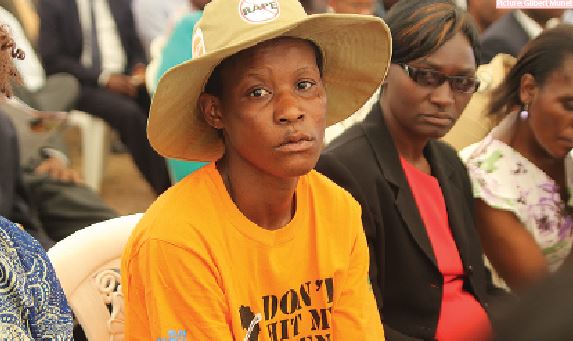
MAHUSEKWA – It had become an affliction for her. For 19 years, she had condemned herself and “felt” like a dead person walking.
BY GARIKAI TUNHIRA
All hope was gone, and now, she only awaited death to knock on her door and consume her.
Life was never the same again for the now 35-year-old Tuwede Adam from Headlands when she suffered a stillbirth after being encouraged to deliver her baby at home.
“I got pregnant when I was 17. At nine months, I felt pangs of labour and I spent three days at home with everyone around me encouraging me to give birth at home,” Adam said during the launch of the $680 million Health Development Fund (HDF) at Mahusekwa District Hospital last week.
Adam was one of the four women who testified about how improvements in local health services in the country have come in handy for them.
A new addition to the local health sector, Mahusekwa District Hospital, which cost $10 million, was opened on September 30, 2013, after construction started in 2008 by the Chinese.
Adam said her child had already died by the time she went to the nearest clinic. There, she was taken into theatre and the foetus extracted from her womb. That was in 1996 when all hell broke loose.
- Chamisa under fire over US$120K donation
- Mavhunga puts DeMbare into Chibuku quarterfinals
- Pension funds bet on Cabora Bassa oilfields
- Councils defy govt fire tender directive
Keep Reading
She suffered a vesico-vaginal fistula, which is an opening in the vaginal wall into the urinary tract. A fistula is a passage or hole formed between two organs in the body or between an organ and the skin.
A vaginal fistula is painless, but it lets urine or excreta pass through into the vagina. It causes soiling problems that women cannot control.
“Whatever it was — walking, coughing, laughing — I couldn’t do a thing to help myself. I sought help at several health institutions, but to no avail. I went back to the clinic where they had operated on me, but they advised me to go to bigger hospitals in Harare,” Adam said.
Because of financial constraints, she failed to go to Harare. Her husband was unemployed and they were staying in the rural areas. So she went back home and continued her 19-year stint in hell. She said she lost all hope and felt uncertain about the future.
“I didn’t know if I had a future at all,” she said.
But a radio programme in August this year on “pirate” radio station Studio 7 was to change her life.
“I heard that several women with a similar problem were being assisted in Chinhoyi,” she said.
The woman she called on the number she got through the radio programme sent Adam transport fare enough to cover the Headlands-Chinhoyi trip a few weeks later.
The United Nations Population Fund had stepped in.
“I went to Chinhoyi and the doctors checked on me. They said I had a three-centimetre opening and they operated on me. A catheter was inserted inside me for 10 days,” she said.
Prior to that, she had left her husband for a year and went back to her parents because she thought she had become the misfit in their marriage owing to the affliction.
She said her husband followed her and took her back since he “still loved me because of his religion as a Jehovah’s Witness”.
He would even assist her do laundry, along with the soiled clothes and blankets, she says, all in the name of love, adding he never took in a second wife.
Water and fluids became her enemy number one. But her husband never gave up on her, and even convinced her that he was to blame for the injury since he had married her and the condition came only after a pregnancy.
But Anna Papaya went through a different experience, describing her 15-year marriage as a nightmare.
“I was abused in the marriage, raped and battered, my husband inserted tips of crutches and bottles into my privates,” she said.
“I have no teeth, was burnt by a hot iron, not only once, but several times. It’s all scars all over my body.” She said she would always seek treatment and would bleed excessively.
Because of the battering, she suffered two miscarriages, the first at four months and the second at seven. During her third pregnancy, she had to run away from her matrimonial home and went to stay with her brother in Gweru.
“I stayed there for five months until my now-ex-husband came and sweet-talked me into going back to our matrimonial home, to which I agreed,” said Papaya.
She went back to her home and stayed for two months after which she had a pre-term baby and had to stay in the “kangaroo” section of the hospital for some time until she and her baby were released.
“It came a time when I got tired of the abuse at the hands of my ex-husband and I walked out of our home. In the past, I would always report my husband to the police and withdraw the cases on several occasions. So now, the police had gotten tired of my case and they were no longer interested,” she said.
“I didn’t even know if I was still a human being or not.”
All her relatives walked out on her and no one wanted to be associated with her. She then got help from international volunteer doctors’ organisation Médecins Sans Frontières (MSF) and Musasa Project, which counsels victims of domestic violence.
“I ended up abusing drugs so I would not feel any pain whenever my ex-husband would torture me. It had become so much for me and I thought drugs would help me out of my situation, not knowing I was putting my life at risk,” she said.











